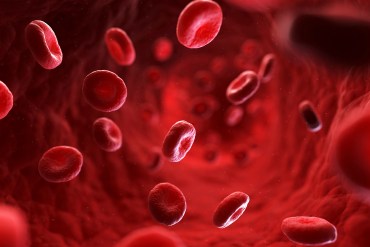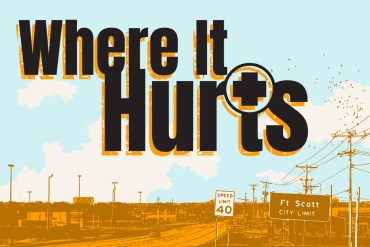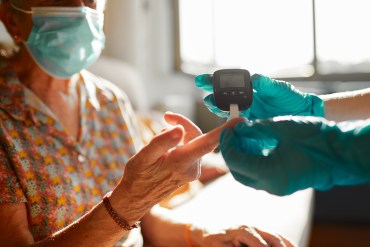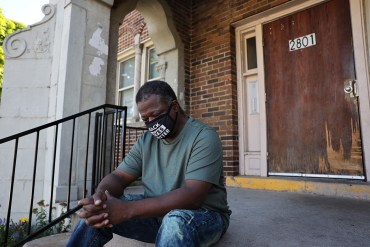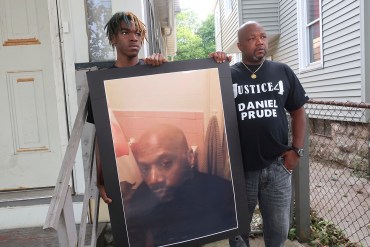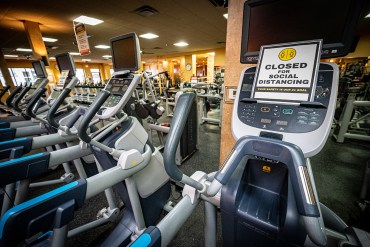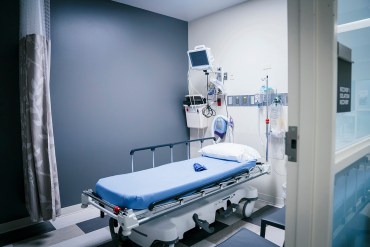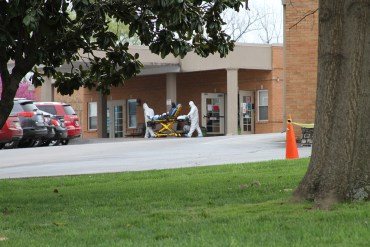What Happened When the Only ER Doctor in a Rural Town Got COVID
Hospitals across the country are struggling as staffers get infected with the coronavirus. It’s especially tough for small, rural hospitals, where even one doctor out sick can upend patient capacity.
Rural Areas Send Their Sickest Patients to Cities, Straining Hospitals
Critically ill rural patients are often sent to city hospitals for high-level treatment, and as their numbers grow, some urban hospitals are buckling under the added strain. Meanwhile, mask-wearing and other pandemic prevention measures remain spotty in rural counties.
Clots, Strokes and Rashes: Is COVID a Disease of the Blood Vessels?
COVID-19 can cause symptoms that go well beyond the lungs, from strokes to organ failure. To explain these widespread injuries, researchers are studying how the virus affects the vascular system.
When False Information Goes Viral, COVID-19 Patient Groups Fight Back
Fear and uncertainty about the coronavirus have made online patient support groups fertile ground for the spread of misinformation. But some in these groups make fact-checking a part of the mission to support fellow COVID sufferers.
Crooked Media and KHN’s ‘No Mercy’ Dissect Fallout After Rural Hospital Shuts
Crooked Media’s “America Dissected” explores the rural health crisis and the COVID-19 pandemic. Podcast guest KHN Editor-in-Chief Elisabeth Rosenthal said: “I expect we’ll see a lot more rural hospital failures.”
They Work in Several Nursing Homes to Eke Out a Living, Possibly Spreading the Virus
An analysis of location data from 30 million smartphones found that facilities across the country that share the most workers also had the most COVID-19 infections. The “Kevin Bacon of nursing homes” in each state — the one with the most staffers working at other nursing homes — was likely to have the worst outbreaks of coronavirus contagion.
Evictions Damage Public Health. The CDC Aims to Curb Them ― For Now.
A survey of 17 cities found more than 50,000 pandemic-related eviction filings. Housing advocates worry that increased housing instability will lead to more COVID-19 and other illnesses.
‘You’re Going to Release Him When He Was Hurting Himself?’
Daniel Prude’s family knew he needed psychiatric care and tried to get it for him. Instead, his encounter with police hours after he was released from Strong Memorial Hospital in Rochester, New York, proved fatal.
Making Gyms Safer: Why the Virus Is Less Likely to Spread There Than in a Bar
Gyms are reopening with fewer people and more protocols, and they want to rehabilitate their pandemic-battered image. Although there’s not much evidence, they say science is on their side.
Will Labor Day Weekend Bring Another Holiday COVID Surge?
Epidemiologists are having a hard time predicting whether Labor Day will be like the Fourth of July and Memorial Day, when celebrations fanned the flames in coronavirus hot spots around the South and West.
Deadly Mix: How Bars Are Fueling COVID-19 Outbreaks
In some states, bars and taverns have brought legal challenges to the coronavirus restrictions that have slowed sales and business.
Swab, Spit, Stay Home? College Coronavirus Testing Plans Are All Over the Map
2020 will be a year like no other on college campuses, as every institution makes its own rules. Some have no plans to routinely test students for the coronavirus; others aim to test every student and staff member twice a week.
Public Health Officials Face Wave Of Threats, Pressure Amid Coronavirus Response
Public health officials are confronting growing pressure — and threats — across the country as the backlash to the coronavirus response continues. At least 27 state and local health leaders have resigned, retired or been fired since April across 13 states.
Eerie Emptiness Of ERs Worries Doctors As Heart Attack And Stroke Patients Delay Care
Emergency department volumes are down 40 to 50 percent across the country. Doctors worry a new wave of cardiac patients is headed their way — people who have delayed care and will be sicker and more injured when they finally seek care.
When Prisons Are ‘Petri Dishes,’ Inmates Can’t Guard Against COVID-19, They Say
Indiana prisoners said they can’t protect themselves from the virus, as the governor resists calls to reduce overcrowding. “Scared for our lives,” said an inmate.
Before ‘Tidal Wave’ Of Illness, Nursing Home Thought It Had COVID-19 Contained
Though it already had one staff member testing positive for the coronavirus, the Gallatin Center for Rehabilitation and Healing did not tell 911 operators this fact as it called ambulances to take residents in respiratory distress to the hospital, a WPLN investigation reveals.
Massachusetts Recruits 1,000 ‘Contact Tracers’ To Battle COVID-19
“I know we will succeed somewhat and we will fail somewhat,” says one of the plan’s chief architects. “We won’t be able to find every single person — but we will hopefully prevent a lot of deaths.”
Massachusetts recluta a 1,000 rastreadores de contactos en su batalla contra COVID-19
El ambicioso plan es no solo retrasar, sino frenar, el poder destructivo de COVID-19 a través de la tediosa pero poderosa herramienta de salud pública llamada rastreo de contactos.
‘It’s Like Walking Into Chernobyl,’ One Doctor Says Of Her Emergency Room
Lack of protective gear and fears about all the unknown aspects of COVID-19 are parts of the mosaic of stress facing doctors and nurses on the front lines of the pandemic.
Pacientes de cáncer enfrentan retrasos en cirugías mientras COVID-19 paraliza hospitales
Son más vulnerables a la infección por el nuevo coronavirus. Y pueden estar enfrentando desafíos imprevistos para obtener atención, quimioterapia, e incluso cirugías para remover tumores.





